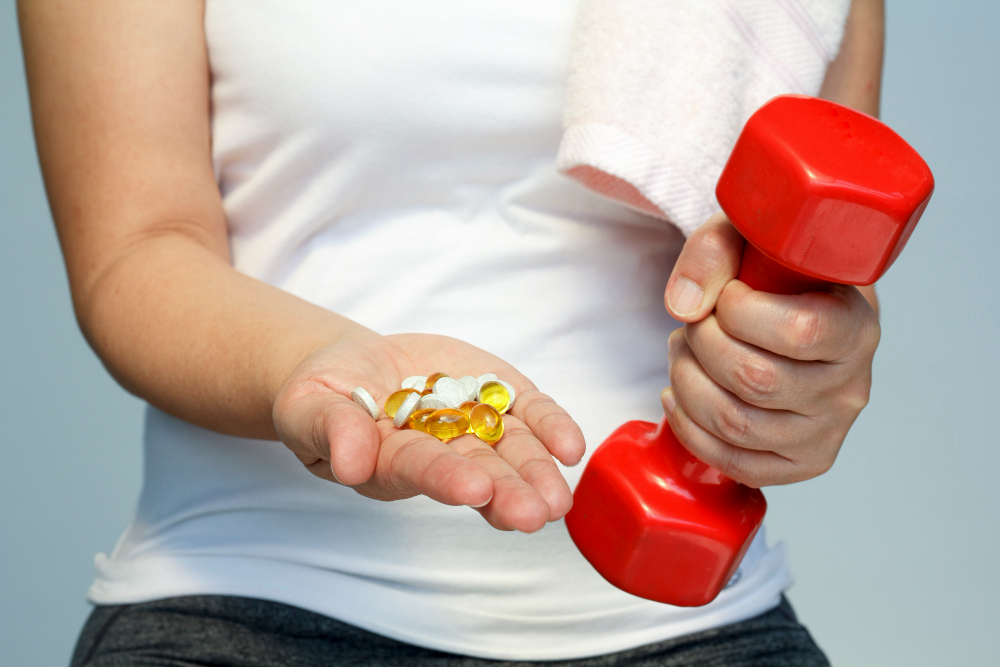Unlock the Power of Iron: How This Essential Nutrient Boosts Your Health
[ad_1]
Unlock the Power of Iron: How This Essential Nutrient Boosts Your Health
Iron is an essential nutrient for maintaining good health. It plays a vital role in the production of red blood cells,
which carry oxygen throughout your body. Iron deficiency can lead to fatigue, weakened immune system, and cognitive
impairments. In this article, we will explore the importance of iron and how it can positively impact your overall
well-being.
The Importance of Iron in Your Body
Iron is necessary for the production of hemoglobin, a protein found in red blood cells that carries oxygen from your
lungs to all the tissues in your body. Without sufficient iron intake, your body cannot produce enough healthy red
blood cells, resulting in iron deficiency anemia.
Iron also plays a crucial role in several other physiological processes. It is essential for the proper functioning
of your immune system and assists in metabolizing proteins and producing DNA. Iron is also involved in maintaining
optimal brain function, playing a role in neurotransmitter synthesis and enzyme activities that support cognitive
performance.
Iron-Rich Foods to Include in Your Diet
The good news is that iron is readily available in various foods, both from animal and plant sources. Here are some
iron-rich foods that you can incorporate into your diet:
-
- Red meat (beef, lamb, and liver)
-
- Poultry (chicken and turkey)
-
- Seafood (clams, oysters, and shrimp)
-
- Beans and legumes (chickpeas, lentils, and kidney beans)
-
- Dark green leafy vegetables (spinach, kale, and broccoli)
-
- Nuts and seeds (pumpkin seeds, cashews, and almonds)
-
- Fortified cereals and bread
Combining iron-rich foods with sources of vitamin C, such as citrus fruits or bell peppers, can enhance iron absorption
as vitamin C facilitates its uptake by your body. On the other hand, avoid consuming iron-rich foods with calcium-rich
items or beverages like milk, as calcium can interfere with iron absorption.
Signs and Consequences of Iron Deficiency
It is important to understand the signs of iron deficiency to prevent potential health risks. Symptoms of iron deficiency
may include constant fatigue, weakness, shortness of breath, pale skin, and brittle nails. Iron deficiency anemia can
also affect brain function, leading to difficulty concentrating and reduced cognitive performance. Furthermore, a weakened
immune system and increased susceptibility to infections are common consequences of inadequate iron levels in the body.
The Importance of Iron for Different Population Groups
Iron requirements may vary based on age, gender, and life stage. For instance, women have higher iron needs due to blood
loss during menstruation. Pregnant women require additional iron for fetal development and increased blood production.
Infants and children also need adequate iron for growth and cognitive development. It is crucial to ensure that each
population group meets their iron needs to maintain optimum health.
Conclusion
Iron is a vital nutrient that plays various roles in maintaining good health. From supporting oxygen transport to
enhancing immune function and cognitive performance, iron should be a key component of your diet. Remember to include
iron-rich foods regularly, and be mindful of factors affecting absorption, such as vitamin C and calcium intake. Stay
alert to the signs of iron deficiency to prevent potential health complications. By unlocking the power of iron, you can
empower yourself with better overall well-being.
FAQs
1. How much iron should I consume daily?
The recommended daily intake for iron varies depending on age and gender. Adult males typically need around 8 mg per
day, while adult females require 18 mg per day. However, specific requirements may vary based on individual health
conditions, so it is best to consult with a healthcare professional for personalized advice.
2. Can vegetarians or vegans meet their iron needs?
Absolutely! While iron from plant-based sources may not be absorbed as efficiently as iron from animal-based sources,
vegetarians and vegans can still meet their iron needs through careful dietary planning. Including plenty of iron-rich
plant foods and enhancing absorption with vitamin C-rich foods can help ensure adequate intake.
3. Can too much iron be harmful?
Yes, consuming excessive amounts of iron can be harmful and lead to iron overload. This can damage organs such as the
liver, heart, and pancreas. It is important to stick to the recommended daily intake and avoid iron supplements unless
prescribed by a healthcare professional.
[ad_2]

